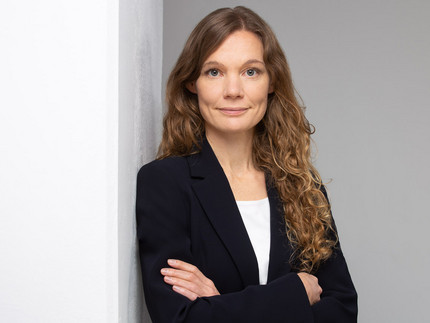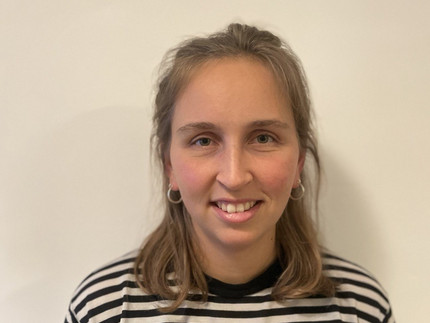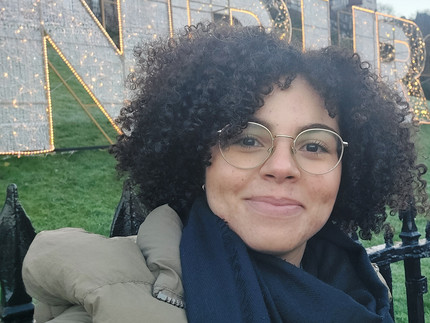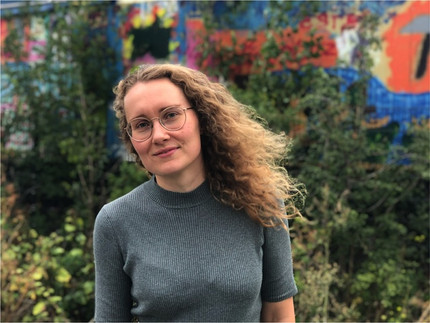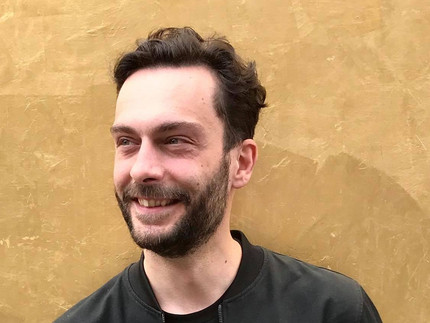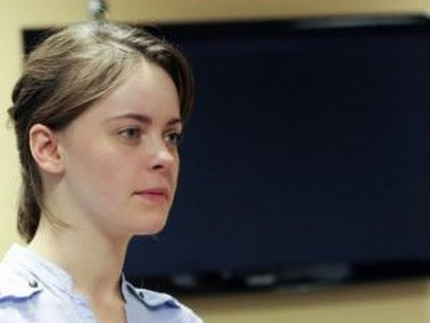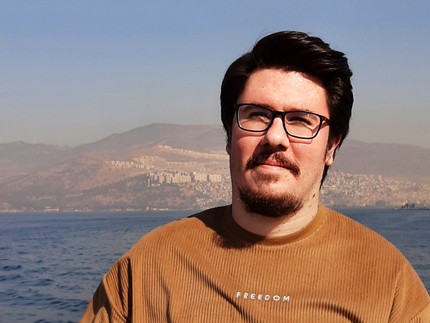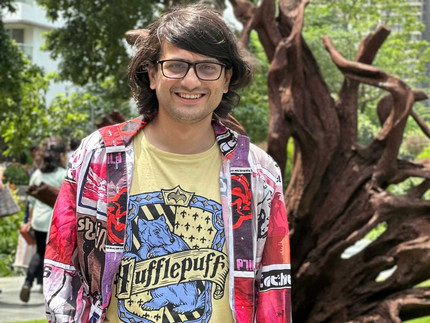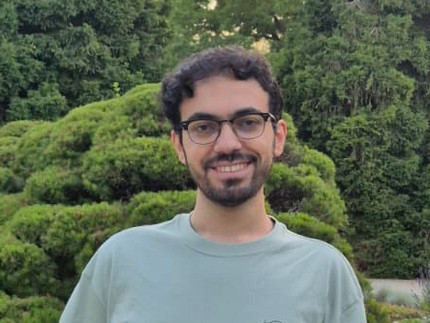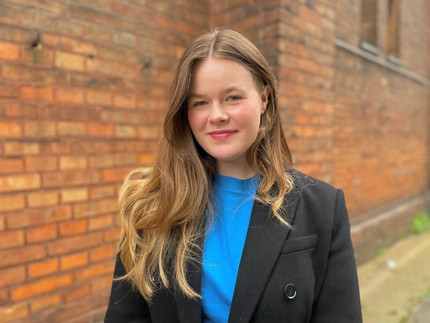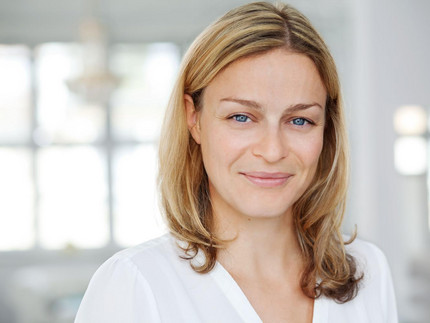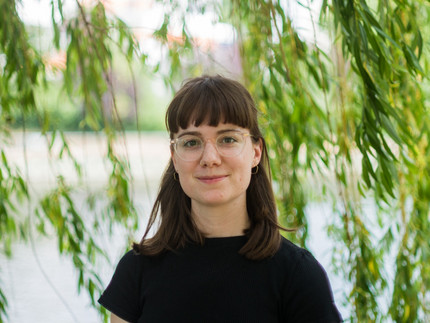People
Prof. Dr. Milena Rabovsky, Principal investigator
Email
Phone: +49 331 977 2703
Campus Golm, bldg. 14, room 4.37
Google Scholar
I did my PhD at the Berlin School of Mind and Brain (Germany). After research stays at the University of Western Ontario (Canada), Stanford University (USA) and Freie Universität Berlin (Germany), I started as principal investigator and tenure track professor at the University of Potsdam (tenured since 2023). I try to better understand how language processing works in the brain, using neuroscientific evidence and computational modelling (see Overview and Publications).
Rosina Zollner, Lab manager
Email
Campus Golm, bldg. 14, room 4.38
I completed my master’s degree in Neurocognitive Psychology at Carl von Ossietzky University of Oldenburg (Germany) in March 2025. In December 2025, I joined the Cognitive Neuroscience Lab as a lab manager. My interests include neuroimaging methods, data analysis and open science. In my role, I am responsible for organizational things, support with data acquisition, assist with EEG data analysis and contribute to establishing open science standards within the lab.
Dr. Georgia Carter, Postdoc
Email
Campus Golm, bldg. 14, room 4.36
Personal Website, Google Scholar
I obtained my PhD from the University of Edinburgh as part of the Centre for Doctoral Training in natural language processing (NLP). My research focuses on understanding the mechanisms and representations that support semantic processing. To do this, I use both neuroimaging and computational methods to investigate this in humans and language models. Some recent questions I have been fascinated by are what the functional significance of ERP components related to predictive processing is and how context-variable information is encoded in pre-trained word embeddings.
Dr. Friederike Contier, Postdoc
Email
Campus Golm, bldg. 14, room 4.09
Personal Website, Google Scholar
My background bridges linguistics, psychology, and cultural studies/literature. During my studies, I trained at the MPI for Psycholinguistics (Nijmegen) and for Human Cognitive and Brain Sciences (Leipzig). My PhD at the CNL lab explored whether the ERP component P600 is linked to noradrenergic brainstem activity, sustained attention, and explicit memory. More generally, I’m fascinated by how the brain makes sense of language and particularly how this draws on shared neural principles with other domains and overlaps with more general cognitive processes.
Dr. Sophie Jano, Postdoc
Email
Campus Golm, bldg. 14, room 4.36
Google Scholar
I recently obtained my PhD from the University of South Australia and now work in the Cognitive Neuroscience Lab as a postdoctoral researcher. I am deeply interested in prediction in the brain and the effect of prediction on memory encoding. My research specifically focusses on the event-related potentials (ERPs) that may be relevant for this relationship in both linguistic and non-linguistic contexts. Some of my other research interests also relate to individual neural factors, pain perception and false memory.
Dr. Alessandro Lopopolo, Postdoc
Email
Campus Golm, bldg. 14, room 4.36
Google Scholar
I have obtained my Ph.D. from the Radboud University Nijmegen (the Netherlands) as part of the Language in Interaction consortium. My research interests focus on applying computational linguistic models to the study of language processing in the brain. I am particularly interested in stochastic language models (both bayesian and neural-based), vector space semantic models, and syntactic parsing. My current work aims to develop and train a connectionist model of sentence comprehension and to use it to investigate how the human brain computes event representations during naturalistic sentence comprehension.
Yana Arkhipova, PhD student
Email
Campus Golm, bldg. 14, room 4.09
Google Scholar
I completed my MSc in Language Sciences at UCL (UK). Following that, I spent a year working as an intern at MPI for Psycholinguistics in Nijmegen. I then joined the Cognitive Neuroscience lab as a PhD student to work on a project investigating the intricacies of the N400's functional significance.
Sertug Gürel, PhD student
Email
Campus Golm, bldg. 14, room 4.10
In my master’s studies, I became interested in computational neuroscience and cognitive modeling. After I finished my master’s degree in neuroscience, I joined the Cognitive Neuroscience Lab as a Ph.D. student. In my research, I focus on understanding the type of linguistic information processed by the deep learning language models’ inner layers. I’m also interested in how the information we get from language models can increase our understanding of language processing in the brain.
Siddharth Gupta, PhD student
Email
Campus Golm, bldg. 14, room 4.10
Github
I completed my master’s in Cognitive Science at IIT Delhi (India) in 2023. In February 2024, I joined the Cognitive Neuroscience Lab as a PhD student, having previously worked in the lab during my master’s internship. Besides, I also have an engineering degree in computer science and experience with NLP. I am interested in computational modeling of language and its application to understanding human sentence comprehension. Currently, I am working on a project that investigates a probable relationship between a model of sentence comprehension and reading times.
Hamza Nalbantoğlu, Student research assistant
Email
Campus Golm, bldg. 14, room 4.12
Google Scholar
I am currently completing my master's degree in the Cognitive Science: Embodied Cognition program at the University of Potsdam. In my bachelor's research, I investigated how sound symbolic words shape tactile perception and meaning construction. My current work focuses on extending computational models of sentence comprehension to better understand multimodal semantic processing in the brain during natural language use.
Theresa Fenske, Student research assistant
Email
Campus Golm, bldg. 14, room 4.12
I am a third-year Psychology student at the University of Potsdam and currently work as a research assistant in the Cognitive Neuroscience Lab. My interest in neuroscience was sparked in one of my seminars where I first gained hands-on experience with EEG experiments. Since then, I’ve developed a deep curiosity about how brain activity supports complex cognitive functions, especially language processing. As part of the lab, I assist with EEG studies and am eager to continue learning more about experimental design, data collection, and analysis in cognitive neuroscience.
Alumni
Dr. Kate Stone, Postdoc in the lab, now Lecturer at the University of Hull, UK
Personal Website, Google Scholar
I did my PhD in the Vasishth Lab at the University of Potsdam (Germany). My research interests are in probabilistic sentence processing and how uncertainty and conflict affect readers' linguistic expectations. I use EEG and computational modelling to examine how these expectations unfold over time.
Dr. Alma Lindborg, Postdoc in the lab, now Machine Learning Researcher at ai|coustics
My research interest lies in investigating the role of probabilistic representations and prediction in perception and cognition. I did my PhD in applied mathematics at the Technical University of Denmark, in which I investigated analogies between brain activity and Bayesian models of multisensory perception. In my postdoc project, I investigate the role of probabilistic representations in language comprehension using deep learning and EEG.
Dr. Alice Hodapp, PhD student in the lab, now Postdoc at NeuroSpin, Paris
Google Scholar
After completing a master’s degree in psychology (Halle/Budapest/Leipzig), I joined the Cognitive Neuroscience Lab as a PhD student to focus on prediction (-errors) in language processing. My research mainly uses EEG with a focus on the N400 ERP component. I am also interested in how comprehenders use prediction errors to make better predictions in the future, what influences these predictions and errors, and which neuromodulators are involved in the process.

